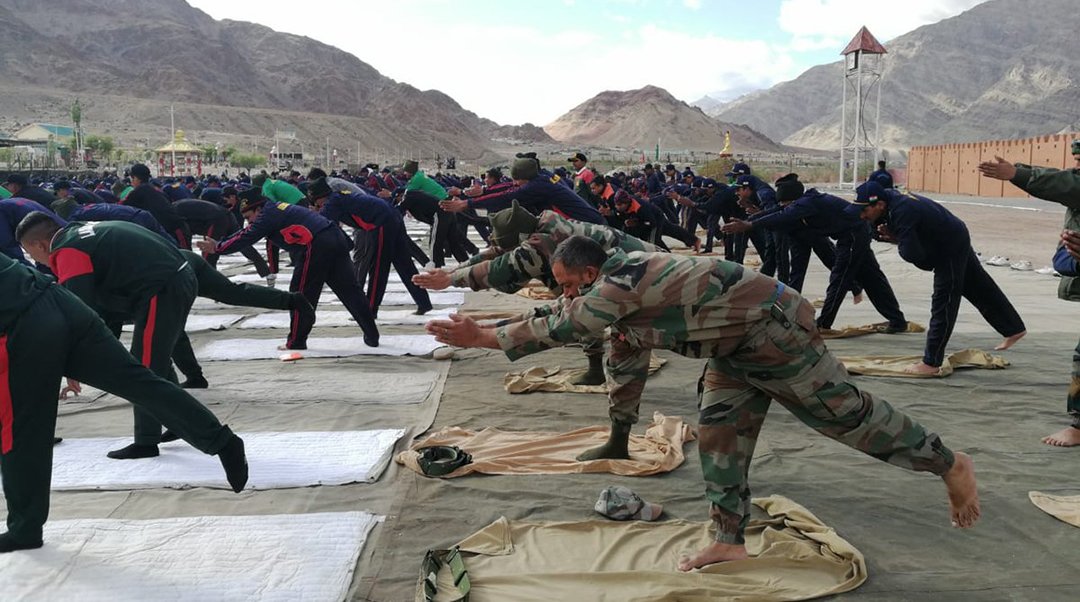HT Bureau
GUWAHATI, July 5: In a comprehensive push to modernise operations and improve working conditions for its frontline workforce, the Northeast Frontier Railway (NFR) has implemented a series of focused initiatives aimed at enhancing the efficiency, safety, and well-being of its Loco Pilots.
According to an official statement, these measures are designed to recognise and support the critical role played by Loco Pilots in ensuring the punctual and safe movement of trains across the region.
Operating under strenuous and high-stakes conditions, Loco Pilots form the backbone of railway transport.
Their duties demand constant vigilance, physical endurance, and mental alertness. In view of these responsibilities, NFR has prioritised the creation of a more supportive and technologically empowered working environment for its running staff.
A key development in this direction is the inauguration of a new, state-of-the-art Running Room at Agartala (AGTL).
Built in accordance with Railway Board guidelines, the facility includes 24 residential rooms offering 48 beds, along with 10 community-use rooms.
These include a yoga and meditation hall, gymnasium, and kitchen and dining areas, all aimed at promoting physical and mental well-being.
Significantly, this is the first running room under NFR to be equipped with an elevator, enhancing accessibility.
All 34 rooms are air-conditioned and feature 24/7 water supply, CCTV surveillance, adjustable lighting, emergency exits, and pest control mechanisms, ensuring a safe and comfortable resting environment for on-duty crew.
In addition to infrastructure upgrades, NFR is focusing on crew welfare and stress management. Running Rooms at New Coochbehar under the Alipurduar Division have achieved ISO 9001:2015 certification, reflecting a commitment to high standards of hygiene and security.
To further boost morale, family counselling sessions are being introduced.
One such session was held on June 28, 2025, at New Coochbehar, offering family members an opportunity to interact with officials and share concerns—thereby strengthening the emotional and psychological support system for Loco Pilots.
Technological upgrades form another cornerstone of NFR’s initiatives.
The introduction of audio-visual route learning modules allows Loco Pilots to digitally familiarise themselves with key track features, junctions, gradients, and speed zones—sharpening their route knowledge and increasing operational safety.
Further, NFR has equipped locomotives with waterless urinals for Loco Pilots, recognising the importance of basic amenities during long hauls.
The ‘Gyaanvaapi’ mobile application has been rolled out to provide Loco Pilots with easy access to technical manuals, circulars, and operational guidelines—ensuring that critical information is available at their fingertips.
In an important move to maintain accountability and alertness during operations, Call Detail Record (CDR) analysis is being used to monitor the presence and attentiveness of Loco Pilots.
This system assists in post-incident reviews and ensures compliance with safety protocols.
Moreover, data loggers integrated with the Control Office Application (COA) have been deployed at 59 stations.
These provide real-time data on train operations and crew performance, enhancing monitoring capabilities and enabling faster response to operational challenges.
These combined efforts reflect a balanced approach by NFR—where cutting-edge technology meets compassionate workplace policies. By addressing both infrastructural needs and the emotional and physical demands of the job, NFR aims to foster a more resilient, efficient, and motivated workforce.
With these ongoing reforms, Northeast Frontier Railway reaffirms its commitment to safety, professionalism, and the holistic development of its Loco Pilots—underscoring their indispensable contribution to India’s railway network.












